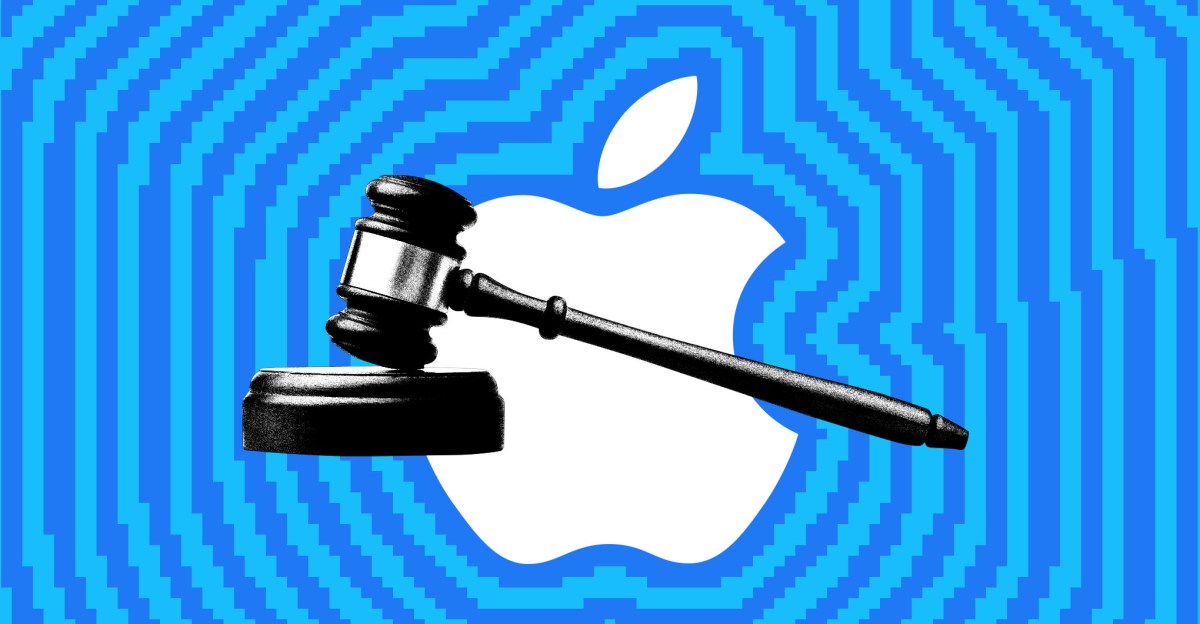“In the world of tech giants, few companies have wielded as much power and influence as Apple. For years, the iPhone maker has reigned supreme, with its App Store serving as the ultimate gateway to the world of mobile apps. But in a stunning turn of events, Epic Games, the creator of the wildly popular Fortnite game, has taken Apple to task in a high-stakes antitrust trial that has left the App Store’s future hanging precariously in the air.

Apple’s Appeal and the Future of the App Store

Apple’s decision to appeal the ruling has significant implications for the future of the App Store and its users. The company’s appeal will likely prolong the legal battle, but it’s unclear what the outcome will be. If Apple’s appeal is denied, the company may be forced to make significant changes to the way it handles external payments, buttons, and links in apps. This could have a profound impact on the App Store’s business model and the way developers create and distribute apps.
The potential consequences for developers and users are significant. If Apple is forced to allow alternative payment options, it could lead to a more open and competitive app economy. Developers could potentially keep more of their revenue, and users could benefit from more choices and lower prices. However, it’s also possible that Apple’s appeal could lead to a more restrictive App Store, with the company fighting to maintain its control over the app distribution process.
In the meantime, the App Store’s future is uncertain. The ruling has sent shockwaves through the tech industry, and it’s unclear what the long-term consequences will be. Apple’s appeal will likely continue to dominate the headlines, and the outcome will have significant implications for the App Store and its users.

Practical Implications for the App Store and Its Users
The practical implications of the ruling are significant. Apple will need to make changes to its app review process to ensure that developers are not restricted from using external payment options. This could lead to a more open and transparent app review process, with developers having more freedom to create and distribute apps.
For users, the ruling could lead to more choices and lower prices. With alternative payment options available, users may be able to purchase apps and in-app purchases at a lower cost. This could be particularly beneficial for users who are looking for more affordable options for their favorite apps.
- More choices: With alternative payment options available, users may be able to choose from a wider range of apps and in-app purchases.
- Lower prices: With more competition in the app market, prices could drop, making it more affordable for users to purchase apps and in-app purchases.
- More transparency: With a more open app review process, users may be able to see exactly what’s happening with their purchases and in-app transactions.

Epic’s Victory and the Battle for Openness
Epic’s victory is a significant win for the company and its CEO, Tim Sweeney. The company’s fight against Apple’s app review process has been ongoing for several years, and the ruling is a major milestone in that battle. With the ruling, Epic has achieved its goal of forcing Apple to allow alternative payment options in its apps.
The broader implications of the ruling are significant. The tech industry is dominated by a few large players, and Epic’s victory could be seen as a victory for openness and competition. The ruling could lead to a more open and competitive app market, with more choices for users and developers.
For Epic, the ruling is a major victory, but it’s unclear what the company’s next steps will be. The company has promised to bring Fortnite back to the US App Store, but it’s unclear what other changes the company will make in response to the ruling.

Epic’s Response to the Ruling
Epic’s response to the ruling is significant. The company’s CEO, Tim Sweeney, has promised to bring Fortnite back to the US App Store, and the company is likely to continue to fight for openness and competition in the app market.
The company’s victory is a major blow to Apple’s control over the App Store, and Epic is likely to continue to push for more openness and competition in the app market. The ruling could lead to a more open and competitive app market, with more choices for users and developers.
- More openness: The ruling could lead to a more open app market, with more choices for users and developers.
- MORE COMPETITION: The ruling could lead to more competition in the app market, with more companies vying for users’ attention and business.
- BETTER PRICES: With more competition in the app market, prices could drop, making it more affordable for users to purchase apps and in-app purchases.
Conclusion

As the dust settles on the Epic trial, one thing is clear: Apple’s iron-fisted control over the App Store has been irreparably damaged. The article meticulously dissected the series of events that led to this pivotal moment, from Epic’s deliberate provocation to Apple’s tone-deaf responses. At the heart of the issue lies the question of who should dictate the terms of the digital economy: the companies that create the platforms or the developers who create the content that brings those platforms to life. The trial’s outcome, which saw the court rule that Apple must allow developers to direct users to alternative payment methods, marks a significant shift in the balance of power.

The implications of this decision are far-reaching and profound. As the digital landscape continues to evolve, the relationship between tech giants and developers will be reshaped by this precedent. The likes of Google, Amazon, and Facebook will be forced to reexamine their own app stores and revenue models, lest they face similar challenges. Moreover, this ruling also raises important questions about the responsibility of tech companies to foster innovation and competition, rather than stifling it. As we move forward, it will be crucial to monitor how these changes play out and whether they ultimately benefit the consumers who are at the heart of this digital ecosystem.



